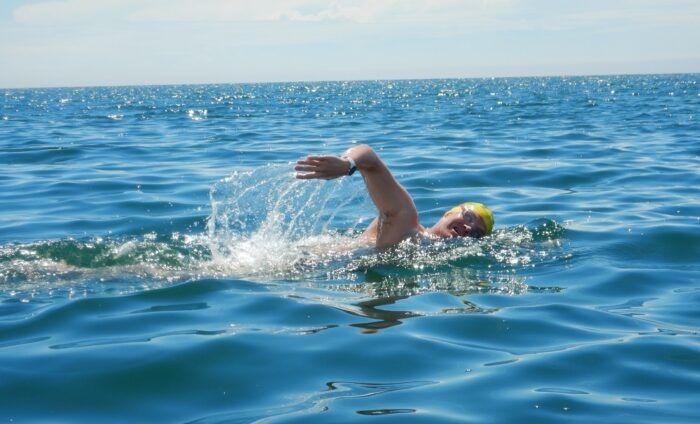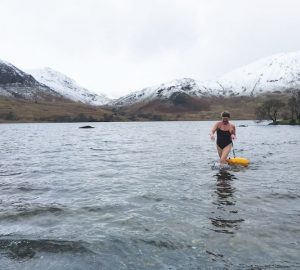
How has COVID-19 affected English Channel swims this year?
Student Daniel Shailer has a Channel crossing booked for this year. He’s been looking into how the coronavirus pandemic has affected Channel swimming this year.
Channel swimming is always unpredictable, and that has never been more true than this year. Government restrictions on unnecessary travel, social distancing and international travel forced all Channel swims in June to cancel and placed much of the rest of the season in jeopardy. With lockdown gradually easing however, many swimmers (myself included) are hoping crossings will begin at some point in July, albeit with a few key changes.
The specific restriction currently preventing crossings is on skippered charter hire, under the guidance for boats and transport. In the hope that this restriction will soon be lifted, pilots have been preparing their boats to comply with social distancing requirements. The Mardles have been preparing their boat, Masterpiece, with an open-air toilet and secured bin bags to keep kit, food and rubbish separate and safe. They anticipate the entire crew will have to wear PPE for much of the swim and the total crew for solo swims will be limited to six people (pilot, observer, swimmer and up to three support crew). Nor is that the full extent of practical limitations; under current guidance, the Channel Swimming Association has stated that successful swimmers will have to self-isolate for a fortnight upon returning to the UK, though this looks set to change when travel restrictions are lifted on July 6. There will, of course, be additional complications for relay and international swimmers, as well as those attempting multiple crossings.
The wisdom of previous Channel swimmers is to avoid picking family members or partners as crew members, who might act emotionally at a crucial point of the swim. Emma France, head of the Dover Channel Training club, thinks this year might be an exception. Social distancing will likely need to be kept even on the boat, and crews that comprise members of the same household, who would not have to distance from each other, would be able to save valuable space and time.
Daniel on his 6 hour qualification swim
Spring tide crossings
Julian Critchlow analyses the statistics of Channel swimming on his blog and thinks the difficulties of crossing during a spring tide are exaggerated. This season might be the time to test that theory, as many swimmers have their crossings pushed into lower positions later in the season. Some pilots have chosen to postpone cancelled swims to 2021 (bumping next year’s swimmers to 2022), while others are offering swimmers this season a slot in two years’ time.
Many of the challenges swimmers will face this season are less practical. With the possibility of a second wave sending the country back into lockdown, it’s likely swims will not be confirmed until shortly before the date of the crossing. This will be a test of motivation in training and a harsh reminder of the difference between process and outcome goals: how much harder will six- and seven-hour training swims feel for an event which may not even take place? For some swimmers, the uncertainty was too much. I was part of a university relay team due to swim in mid-July; we cancelled our booking at the start of May, but it now looks as though some swims from our window may go ahead. For other, more experienced swimmers, this reduced season could be an opportunity to put their names in the history books with a record swim from a reduced number of swimmers.
Since March, aspiring Channel swimmers have faced a host of added difficulties on top of the usual challenges of preparing for a marathon swim: from training without pools to getting a medical, when doctors and nurses are already so busy. Like many swimmers, I have been using my Channel swim as an opportunity to raise money for charity. It is hard, however, to encourage potential donors to sponsor an event that is so uncertain.
With restrictions changing on a weekly basis, all that is certain is that any swimmers lucky enough to leave Dover this year will have plenty of stories to tell.
Read more







